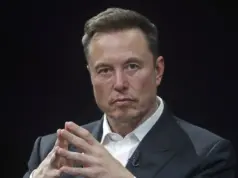Microsoft has hit upon a potentially new data storage medium – oligonucleotides or DNA molecules synthesised in the laboratory as a possible means for storing data on a long-term basis. Towards that, the Washington, Redmond-based company has announced the acquisition of ten million strands of DNA from the San Francisco-based bio start-up Twist Bioscience.
While the move seems bizarre, although there are solid reasons justifying it. For instance, DNA offers data density to the orders of magnitude several times higher than traditional storage mediums such as Blu-Ray disks or hard drives. Just 1 gram of DNA will be enough to represent about a billion terabyte of data. That is not all DNA fragments have also been found to be extremely resilient with strands 1,000 to 10,000 years old found to be perfectly decipherable.
“As our digital data continues to expand exponentially, we need new methods for long-term, secure data storage,” Microsoft Research’s Doug Carmean said.
Recent advancements in technology have already shrunk the size of storage mediums dramatically so that storage to the tune of several hundred gigabytes is now possible on chips that span just a few millimetres. That could well hit the next stage with Microsoft estimating a cubic millimetre of DNA being able to store a billion gigabytes of data.
That does make the prospect of coming to smartphones or tablets featuring DNA-based storage seem bright though it’s still likely to be several years away from becoming a mass reality. And the main impediment to that is reading and writing operation. As of now, writing is accomplished using a machine devised by Twist.
Another aspect that needs to be factored in is the cost bit. For instance, a custom DNA string costs 10 cents per base at the moment which Twist is hoping to bring down to 2 cents. How that compares to the conventional storage medium is not known though what is keeping Microsoft engaged at the tech is the huge data storage advantage it allows for coupled with the relative robustness of the medium.
Microsoft has also stated they have tasted success during the initial trial phase that allowed them complete data retrieval from DNA. What needs to be achieved now is bringing the cost down to acceptable limits along with ease of reading and writing data.










